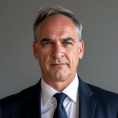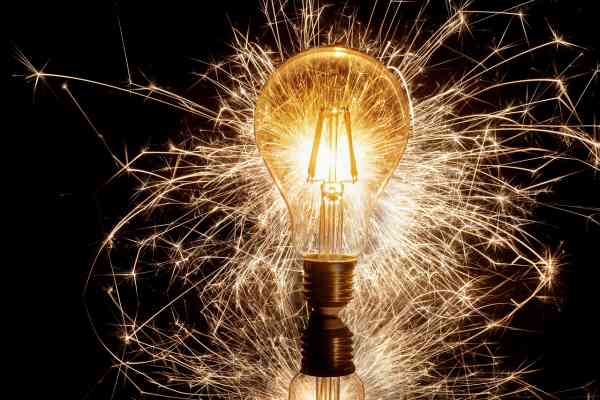October 28th, 2019 | 05:50 CET
AUDI, BMW, DAIMLER - EVERYTHING COMES IN A COMPLETELY DIFFERENT WAY
For many decades, the developers and engineers of renowned German car manufacturers focused on the optimization of combustion engines. Performance, reliability and range were at the top of the list of requirements that the market demanded as a prerequisite for purchasing decisions. Actually not much has changed about that, there is only one more point on the list - if possible, the drive should be cleaner. Blinded by Elon Musk's battery cars, carmakers in this country were also working on pure electric motors, and politicians were doing it, by the way. But the sales figures meanwhile point to a gigantic flop - for many good reasons.
time to read: 2 minutes
|
Author:
Mario Hose
ISIN:
Table of contents:

"[...] Why should a modular electrolyzer cost more than a motorcycle? [...]" Sebastian-Justus Schmidt, CEO and Founder, Enapter AG
Author
Mario Hose
Born and raised in Hannover, Lower Saxony follows social and economic developments around the globe. As a passionate entrepreneur and columnist he explains and compares the most diverse business models as well as markets for interested stock traders.
Tag cloud
Shares cloud
BATTERY CARS ARE CHARGE INHIBITORS
Since 2015, when it became known that Schummel software was used on diesel vehicles on the test bench, German carmakers have invested a lot of money in the development of vehicles with electric motors and batteries. Elaborate marketing campaigns were used to try to make the pure Stromer appealing to customers.
Despite all efforts, 47,903 battery-powered cars were sold in the first nine months of 2019, according to the German Federal Motor Transport Authority (Kraftfahrt-Bundesamt), which corresponds to 1.7% of the total number of 2,740,158 passenger cars.
POLICY SETS THE WRONG ACCENTS
The majority of the living conditions of families and working people cannot be served by battery-powered cars. The cars are expensive, the electricity from charging stations is limited due to the hardly available infrastructure, the charging time is too long and therefore unacceptable, the range uninteresting and the production of cobalt and lithium under questionable conditions gnaws at the conscience.
German federal policy promotes the purchase of a new battery car with tax revenues of up to EUR 4,000.00 and the subsidisation of a Tesla battery factory worth billions is still in the pipeline. The taxpayers bear the costs and the environment in the poorer countries the burden of this absurd development. "La strada dell'inferno è lastricata di buone intenzioni." In English: The road to hell is paved with good intentions.
GAS STATIONS NEED HYDROGEN COLUMNS
Why hydrogen technology is still being neglected by leading politicians and decision-makers is a mystery. The construction of a filling station network for hydrogen vehicles can be based on customers' previous habits and living conditions. Vehicle users and filling station operators simply purchase and sell a different fuel. The type of refuelling process, the duration of around three minutes and the range of 500 to 700 km are comparable to conventional habits.
There are currently around 14,100 filling stations in Germany. Equipping this already established infrastructure with hydrogen fuel pumps is certainly more practical than rewiring park and residential buildings, roads in residential areas and hotels with high-performance charging stations. In Germany, 76 hydrogen filling stations have been opened and more are being opened.
DYNACERT SUPPLIES TECHNOLOGY FOR RETROFITTING
The Canadian technology company dynaCERT has launched a hydrogen solution this year that enables diesel engines to significantly reduce fuel consumption and pollutant emissions. Bus and truck fleets can use these retrofit devices to do something for the environment and reduce fuel costs at the same time. Within less than a year, users can amortize the purchase costs. Competitive industries appreciate this cost advantage.
GERMAN INDUSTRY EXPERT STRIVES FOR COOPERATION
dynaCERT solves problems and creates desires. For these reasons, it is not surprising that MOSOLF, one of the leading logistics service providers for the European automotive industry, is working on a distribution agreement with dynaCERT less than two months after issuing the general operating license for hydrogen technology in Germany.
The Canadian hydrogen experts will be at the following investor fairs in the coming weeks and will present themselves to the participants: Precious Metals & Commodities Fair, Munich, German Equity Forum, Frankfurt and the Munich Capital Markets Conference (MKK).
WHEN WILL HYDROGEN CARS ARRIVE?
In recent days, Daimler has delivered a police car powered by a hydrogen fuel cell to the media in Hamburg. It will only be a matter of time before Audi (h-tron) and BMW (Hydrogen NEXT) will also be launching standard hydrogen models on the market. The future of drive types will be diverse and hydrogen will continue to gain in importance.
Conflict of interest
Pursuant to §85 of the German Securities Trading Act (WpHG), we point out that Apaton Finance GmbH as well as partners, authors or employees of Apaton Finance GmbH (hereinafter referred to as "Relevant Persons") may in the future hold shares or other financial instruments of the mentioned companies or will bet on rising or falling on rising or falling prices and therefore a conflict of interest may arise in the future. conflict of interest may arise in the future. The Relevant Persons reserve the shares or other financial instruments of the company at any time (hereinafter referred to as the company at any time (hereinafter referred to as a "Transaction"). "Transaction"). Transactions may under certain circumstances influence the respective price of the shares or other financial instruments of the of the Company.
Furthermore, Apaton Finance GmbH reserves the right to enter into future relationships with the company or with third parties in relation to reports on the company. with regard to reports on the company, which are published within the scope of the Apaton Finance GmbH as well as in the social media, on partner sites or in e-mails, on partner sites or in e-mails. The above references to existing conflicts of interest apply apply to all types and forms of publication used by Apaton Finance GmbH uses for publications on companies.
Risk notice
Apaton Finance GmbH offers editors, agencies and companies the opportunity to publish commentaries, interviews, summaries, news and etc. on news.financial. These contents serve information for readers and does not constitute a call to action or recommendations, neither explicitly nor implicitly. implicitly, they are to be understood as an assurance of possible price be understood. The contents do not replace individual professional investment advice and do not constitute an offer to sell the share(s) offer to sell the share(s) or other financial instrument(s) in question, nor is it an nor an invitation to buy or sell such.
The content is expressly not a financial analysis, but rather financial analysis, but rather journalistic or advertising texts. Readers or users who make investment decisions or carry out transactions on the basis decisions or transactions on the basis of the information provided here act completely at their own risk. There is no contractual relationship between between Apaton Finance GmbH and its readers or the users of its offers. users of its offers, as our information only refers to the company and not to the company, but not to the investment decision of the reader or user. or user.
The acquisition of financial instruments entails high risks that can lead to the total loss of the capital invested. The information published by Apaton Finance GmbH and its authors are based on careful research on careful research, nevertheless no liability for financial losses financial losses or a content guarantee for topicality, correctness, adequacy and completeness of the contents offered here. contents offered here. Please also note our Terms of use.




